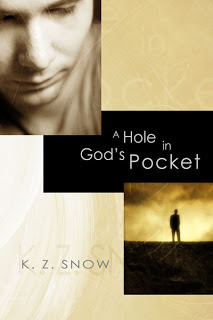K.Z. Snow's Blog, page 18
April 24, 2012
The Special Snowflake Syndrome
Man, I've seen a lot of this in the past couple of years. Among writers, I mean. Maybe the increase is directly proportional to the increase of authors in the m/m romance genre (the one with which I'm most familiar). Maybe it has something to do with the proliferation of review sites. But yikes, more and more writers seem to be getting inordinately upset over less than Omigod-this-is-the-best-thing-since-toilet-paper! reactions to their published work.
 I'm always taken aback by such hand-wringing, which I now seem to be witnessing on a regular basis. So I figured it was time for some unsolicited advice from a DIKless veteran living far below the poverty line -- namely, me.
I'm always taken aback by such hand-wringing, which I now seem to be witnessing on a regular basis. So I figured it was time for some unsolicited advice from a DIKless veteran living far below the poverty line -- namely, me.
1. If you can't stand the heat, stay out of the kitchen. Reader sites like Amazon and Goodreads can be little slices of Dante's Inferno to authors. If you've experienced this unpleasant fact, and it's making your follicles lose their grip on your hair, stay away! The cure for your woe is that simple. I use Amazon and Goodreads as resources -- to get the skinny on books that might interest me -- but I never check on my own books. Never. Watching the bouncing ball that is a book's average rating, or seeing how few ratings a book gets, does me no good whatsoever. So I don't keep track of that stuff. Many writers need to adopt the same approach. Trust me; it works wonders.
2. Even if you can stand the heat, stay out of the way. Many readers don't appreciate authors breathing down their necks. So, refrain from being a buttinski. Give readers their space. Let them rave about your books or rant about your books or simply discuss your books without interjecting yourself into their monologues and dialogues. Readers are smart enough to know we appreciate good reviews. They're also smart enough to PM us if they have questions only we can answer. Hovering isn't necessary. In fact, it's kind of neurotic and creepy.
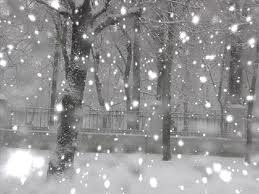 3. Take a reality check. Each of my stories and characters is a Very Special Snowflake. ("Snow" flake -- get it? Heh.) However . . . that's only in my world. More often than not, my Snowflakes aren't even noticed in other people's worlds. And why should they be? They're mere specks in a weekly blizzard of releases. Now don't get me wrong: I'm deeply grateful when they are noticed, and even more grateful when they're valued. But in an era when publishing a book is almost as easy as putting on your shoes, every author needs to tone down his/her expectations. Each of us is less and less "special" by the day. It's a fact of publishing life. Get used to it.
3. Take a reality check. Each of my stories and characters is a Very Special Snowflake. ("Snow" flake -- get it? Heh.) However . . . that's only in my world. More often than not, my Snowflakes aren't even noticed in other people's worlds. And why should they be? They're mere specks in a weekly blizzard of releases. Now don't get me wrong: I'm deeply grateful when they are noticed, and even more grateful when they're valued. But in an era when publishing a book is almost as easy as putting on your shoes, every author needs to tone down his/her expectations. Each of us is less and less "special" by the day. It's a fact of publishing life. Get used to it.
 4. Rein in your ego. This is part and parcel of the point above. Don't assume your work deserves praise. Don't assume it deserves a place on every reader's keeper shelf. It doesn't deserve a damned thing, except what it is legally due from its publisher and distributors. Remember, we're writing popular fiction. Genre fiction, in fact. We're not in a race for the Pulitzer or Booker or Nobel Prize. We're not contestants on Top Wordsmith or Iron Author. No matter how convinced we are that we're uniquely inspired and were meant to write -- because God decreed it, or it's a destiny spelled out in our stars, or a gypsy woman murmured a blessing over Mama's pregnant belly -- precious few writers are genuinely and profoundly gifted. Even fewer are as gifted as they think they are. This means we need to put our work in realistic perspective and adopt some humility.
4. Rein in your ego. This is part and parcel of the point above. Don't assume your work deserves praise. Don't assume it deserves a place on every reader's keeper shelf. It doesn't deserve a damned thing, except what it is legally due from its publisher and distributors. Remember, we're writing popular fiction. Genre fiction, in fact. We're not in a race for the Pulitzer or Booker or Nobel Prize. We're not contestants on Top Wordsmith or Iron Author. No matter how convinced we are that we're uniquely inspired and were meant to write -- because God decreed it, or it's a destiny spelled out in our stars, or a gypsy woman murmured a blessing over Mama's pregnant belly -- precious few writers are genuinely and profoundly gifted. Even fewer are as gifted as they think they are. This means we need to put our work in realistic perspective and adopt some humility.
Consumers' preferences are all over the place and ever-changing. That's just the way it is. And guess what? Writers are in good company. This truth also applies to musicians, actors, artists, film-makers, and anybody else engaged in some creative pursuit. So, for the sake of your sanity and self-confidence, resign yourself to the vagaries of human taste and the limits of your own talent. Definitely keep honing your craft, but save your angst for what really matters.
Now, for a palate cleanser. Enjoy. ;-)

 I'm always taken aback by such hand-wringing, which I now seem to be witnessing on a regular basis. So I figured it was time for some unsolicited advice from a DIKless veteran living far below the poverty line -- namely, me.
I'm always taken aback by such hand-wringing, which I now seem to be witnessing on a regular basis. So I figured it was time for some unsolicited advice from a DIKless veteran living far below the poverty line -- namely, me. 1. If you can't stand the heat, stay out of the kitchen. Reader sites like Amazon and Goodreads can be little slices of Dante's Inferno to authors. If you've experienced this unpleasant fact, and it's making your follicles lose their grip on your hair, stay away! The cure for your woe is that simple. I use Amazon and Goodreads as resources -- to get the skinny on books that might interest me -- but I never check on my own books. Never. Watching the bouncing ball that is a book's average rating, or seeing how few ratings a book gets, does me no good whatsoever. So I don't keep track of that stuff. Many writers need to adopt the same approach. Trust me; it works wonders.
2. Even if you can stand the heat, stay out of the way. Many readers don't appreciate authors breathing down their necks. So, refrain from being a buttinski. Give readers their space. Let them rave about your books or rant about your books or simply discuss your books without interjecting yourself into their monologues and dialogues. Readers are smart enough to know we appreciate good reviews. They're also smart enough to PM us if they have questions only we can answer. Hovering isn't necessary. In fact, it's kind of neurotic and creepy.
 3. Take a reality check. Each of my stories and characters is a Very Special Snowflake. ("Snow" flake -- get it? Heh.) However . . . that's only in my world. More often than not, my Snowflakes aren't even noticed in other people's worlds. And why should they be? They're mere specks in a weekly blizzard of releases. Now don't get me wrong: I'm deeply grateful when they are noticed, and even more grateful when they're valued. But in an era when publishing a book is almost as easy as putting on your shoes, every author needs to tone down his/her expectations. Each of us is less and less "special" by the day. It's a fact of publishing life. Get used to it.
3. Take a reality check. Each of my stories and characters is a Very Special Snowflake. ("Snow" flake -- get it? Heh.) However . . . that's only in my world. More often than not, my Snowflakes aren't even noticed in other people's worlds. And why should they be? They're mere specks in a weekly blizzard of releases. Now don't get me wrong: I'm deeply grateful when they are noticed, and even more grateful when they're valued. But in an era when publishing a book is almost as easy as putting on your shoes, every author needs to tone down his/her expectations. Each of us is less and less "special" by the day. It's a fact of publishing life. Get used to it. 4. Rein in your ego. This is part and parcel of the point above. Don't assume your work deserves praise. Don't assume it deserves a place on every reader's keeper shelf. It doesn't deserve a damned thing, except what it is legally due from its publisher and distributors. Remember, we're writing popular fiction. Genre fiction, in fact. We're not in a race for the Pulitzer or Booker or Nobel Prize. We're not contestants on Top Wordsmith or Iron Author. No matter how convinced we are that we're uniquely inspired and were meant to write -- because God decreed it, or it's a destiny spelled out in our stars, or a gypsy woman murmured a blessing over Mama's pregnant belly -- precious few writers are genuinely and profoundly gifted. Even fewer are as gifted as they think they are. This means we need to put our work in realistic perspective and adopt some humility.
4. Rein in your ego. This is part and parcel of the point above. Don't assume your work deserves praise. Don't assume it deserves a place on every reader's keeper shelf. It doesn't deserve a damned thing, except what it is legally due from its publisher and distributors. Remember, we're writing popular fiction. Genre fiction, in fact. We're not in a race for the Pulitzer or Booker or Nobel Prize. We're not contestants on Top Wordsmith or Iron Author. No matter how convinced we are that we're uniquely inspired and were meant to write -- because God decreed it, or it's a destiny spelled out in our stars, or a gypsy woman murmured a blessing over Mama's pregnant belly -- precious few writers are genuinely and profoundly gifted. Even fewer are as gifted as they think they are. This means we need to put our work in realistic perspective and adopt some humility. Consumers' preferences are all over the place and ever-changing. That's just the way it is. And guess what? Writers are in good company. This truth also applies to musicians, actors, artists, film-makers, and anybody else engaged in some creative pursuit. So, for the sake of your sanity and self-confidence, resign yourself to the vagaries of human taste and the limits of your own talent. Definitely keep honing your craft, but save your angst for what really matters.
Now, for a palate cleanser. Enjoy. ;-)
Published on April 24, 2012 20:35
April 21, 2012
What to read?
Right now I'm on a miserably strict budget (still need to replace my crapped-out camera, still need a laptop with Word 2010, still need silly little things like groceries, etc.), so I'm trying to figure out how to satisfy my need to read without exceeding $5 a pop for each title.
Thus far I've been turning to dead-tree books I've picked up over the years at a local thrift shop and at library sales. (Most have been disappointing.) I've been feeding my Kindle, too, but only if/when I can find deals. Used print editions of older nonfiction texts are fairly easy to come by at Amazon and Half.com, so that's helped.
Got any other suggestions? I have an enormous TBR of e-book fiction titles, but . . . they all exceed my spending limit. I'll get them sooner or later; just can't do it now. (Seriously, I have to stick to this $5 cap lest my next credit card bill makes me run screaming through the woods!)
By the way, if you have the impression JLA ain't no sugar daddy, you're absolutely correct. ;-)
Thus far I've been turning to dead-tree books I've picked up over the years at a local thrift shop and at library sales. (Most have been disappointing.) I've been feeding my Kindle, too, but only if/when I can find deals. Used print editions of older nonfiction texts are fairly easy to come by at Amazon and Half.com, so that's helped.
Got any other suggestions? I have an enormous TBR of e-book fiction titles, but . . . they all exceed my spending limit. I'll get them sooner or later; just can't do it now. (Seriously, I have to stick to this $5 cap lest my next credit card bill makes me run screaming through the woods!)
By the way, if you have the impression JLA ain't no sugar daddy, you're absolutely correct. ;-)
Published on April 21, 2012 09:35
April 18, 2012
"The sky was brass. The earth was ashes."
Whenever I'm feeling glum about the way things are going, I turn to a certain form of therapy that's pretty damned effective: nonfiction accounts of trying times or tragic events in history. It's a surefire way of ending a personal pity party.
Here's what I learned during my most recent adjustment of perspective.
On the night of October 8, 1871, Chicago burned and some 250 people perished. But . . . as spectacular as the Great Chicago Fire was, it paled beside the inferno taking place, simultaneously, just over 200 miles to the north -- a large slice of hell that became the most destructive fire in U.S. history and the nation's third worst natural-disaster of any kind.
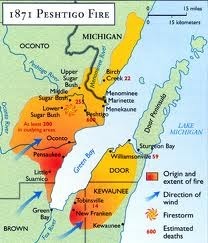 Bad enough the two arms of this conflagration devoured well over a million acres of white-pine and hardwood forests, as well as the farms and settlements that had been carved from those forests, and left behind a colorless wasteland. But in the vicinity of Peshtigo, Wisconsin, the fire became a fire storm -- its own superheated weather system, complete with tornadoes -- that made the earth resemble the surface of the sun.
Bad enough the two arms of this conflagration devoured well over a million acres of white-pine and hardwood forests, as well as the farms and settlements that had been carved from those forests, and left behind a colorless wasteland. But in the vicinity of Peshtigo, Wisconsin, the fire became a fire storm -- its own superheated weather system, complete with tornadoes -- that made the earth resemble the surface of the sun.
The blaze was so intense it cracked boulders, melted metal, and spun sand into glass. It lifted at least one house off its foundation and caused it to explode in midair. Firebrands shot from the trees. Fireballs fell from the sky. Sheets and waves of fire canopied the land. Buildings and bodies went up like torches, instantly engulfed in flames.
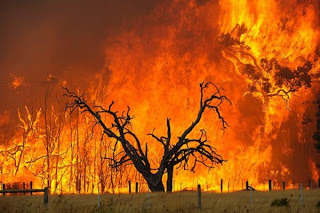 On both sides of the bay, people were suffocated or charred beyond recognition. Countless victims were incinerated down to small piles of ash. (One father could only identify his son's remains through a pocket knife sticking up from a mound of white powder.) Whole families were wiped out. The town of Peshtigo was annihilated. An entire ecosystem went up in smoke.
On both sides of the bay, people were suffocated or charred beyond recognition. Countless victims were incinerated down to small piles of ash. (One father could only identify his son's remains through a pocket knife sticking up from a mound of white powder.) Whole families were wiped out. The town of Peshtigo was annihilated. An entire ecosystem went up in smoke.
In other words, the fires that roared up both sides of Green Bay were nothing short of apocalyptic.
Estimates of fatalities range from 1,200 to 2,500. The Peshtigo River likely kept the death toll from exceeding 3,000. Clogged as it was with people, livestock, and burning logs, the river nevertheless provided the only refuge for the town's inhabitants. They endured it, if they could, for five eternal hours.
Help did not come quickly to stricken areas. Simply getting the word out was difficult. Telegraph lines had been destroyed and roads had been rendered impassable by fallen timber. Wagons had been consumed by flames and draft animals killed or crippled.
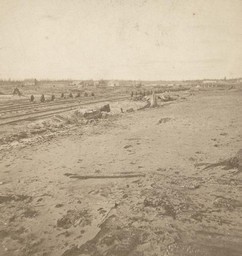
The suffering of the survivors was incalculable. Most were burned, or impaired by smoke inhalation. When the worst of the fire had passed, autumn's chill immediately returned. There was no food, no shelter, no adequate clothing to be had. And there was certainly no medical aid. In outlying areas, even water was impossible to find. Therefore, many people who'd made it through the fires subsequently died from their injuries or from starvation or renal failure. Months later, bodies were still being discovered in the scorched woods.
Slowly, Peshtigo rebuilt itself. So did the rest of the devastated region. In fact, when I was a girl, I spent part of each summer in the fire zone. There's a town just north of the city of Green Bay called Little Suamico (you can see its dot on the map above). My aunt and uncle had a primitive cottage up there, and it was my parents' vacation destination for many, many years. Little did I know as I gallivanted around those 40 acres that the most horrific fire in American history had raged over that very same patch of ground.
Right now, I'm not too inclined to complain about much of anything. ;-)

Here's what I learned during my most recent adjustment of perspective.
On the night of October 8, 1871, Chicago burned and some 250 people perished. But . . . as spectacular as the Great Chicago Fire was, it paled beside the inferno taking place, simultaneously, just over 200 miles to the north -- a large slice of hell that became the most destructive fire in U.S. history and the nation's third worst natural-disaster of any kind.
 Bad enough the two arms of this conflagration devoured well over a million acres of white-pine and hardwood forests, as well as the farms and settlements that had been carved from those forests, and left behind a colorless wasteland. But in the vicinity of Peshtigo, Wisconsin, the fire became a fire storm -- its own superheated weather system, complete with tornadoes -- that made the earth resemble the surface of the sun.
Bad enough the two arms of this conflagration devoured well over a million acres of white-pine and hardwood forests, as well as the farms and settlements that had been carved from those forests, and left behind a colorless wasteland. But in the vicinity of Peshtigo, Wisconsin, the fire became a fire storm -- its own superheated weather system, complete with tornadoes -- that made the earth resemble the surface of the sun.The blaze was so intense it cracked boulders, melted metal, and spun sand into glass. It lifted at least one house off its foundation and caused it to explode in midair. Firebrands shot from the trees. Fireballs fell from the sky. Sheets and waves of fire canopied the land. Buildings and bodies went up like torches, instantly engulfed in flames.
 On both sides of the bay, people were suffocated or charred beyond recognition. Countless victims were incinerated down to small piles of ash. (One father could only identify his son's remains through a pocket knife sticking up from a mound of white powder.) Whole families were wiped out. The town of Peshtigo was annihilated. An entire ecosystem went up in smoke.
On both sides of the bay, people were suffocated or charred beyond recognition. Countless victims were incinerated down to small piles of ash. (One father could only identify his son's remains through a pocket knife sticking up from a mound of white powder.) Whole families were wiped out. The town of Peshtigo was annihilated. An entire ecosystem went up in smoke.In other words, the fires that roared up both sides of Green Bay were nothing short of apocalyptic.
Estimates of fatalities range from 1,200 to 2,500. The Peshtigo River likely kept the death toll from exceeding 3,000. Clogged as it was with people, livestock, and burning logs, the river nevertheless provided the only refuge for the town's inhabitants. They endured it, if they could, for five eternal hours.
Help did not come quickly to stricken areas. Simply getting the word out was difficult. Telegraph lines had been destroyed and roads had been rendered impassable by fallen timber. Wagons had been consumed by flames and draft animals killed or crippled.

The suffering of the survivors was incalculable. Most were burned, or impaired by smoke inhalation. When the worst of the fire had passed, autumn's chill immediately returned. There was no food, no shelter, no adequate clothing to be had. And there was certainly no medical aid. In outlying areas, even water was impossible to find. Therefore, many people who'd made it through the fires subsequently died from their injuries or from starvation or renal failure. Months later, bodies were still being discovered in the scorched woods.
Slowly, Peshtigo rebuilt itself. So did the rest of the devastated region. In fact, when I was a girl, I spent part of each summer in the fire zone. There's a town just north of the city of Green Bay called Little Suamico (you can see its dot on the map above). My aunt and uncle had a primitive cottage up there, and it was my parents' vacation destination for many, many years. Little did I know as I gallivanted around those 40 acres that the most horrific fire in American history had raged over that very same patch of ground.
Right now, I'm not too inclined to complain about much of anything. ;-)
Published on April 18, 2012 15:23
April 15, 2012
Meet Carny Indigo Jessup.
 Okay, so he doesn't have ear buttons (and never will), and doesn't have tats yet (although they're in his near future), but this is pretty much what Carny Jessup looks like. He's the young hero of Carny's Magic, coming May 29 from Loose Id.
Okay, so he doesn't have ear buttons (and never will), and doesn't have tats yet (although they're in his near future), but this is pretty much what Carny Jessup looks like. He's the young hero of Carny's Magic, coming May 29 from Loose Id.Here's his very condensed version of his story:
I'll get right to the point. The best part of my life began when my aunt’s homophobic squeeze smashed his fist into my face. That is no shit.
I already knew a wizard named Jackson Spey lived on my side of town, so I figured I’d turn things around by becoming his apprentice. Problem was, Spey didn’t want an apprentice. He was going through some kind of midlife crisis. All he wanted was to build beautiful furniture and have sex with his beautiful husband, Adin.
He still took me in, though. Guess he felt sorry for me. And the red paths I’d been seeing in the air really intrigued him.
Hey, I’m only 19, so how could I have foreseen the rest? That I’d fall for a breathtaking boy named Peter, who was at the center of some strange magic tied to Jackson’s past. And I’d have to deal with a sorcerer named Bezod, an evil pig who plagued all four of us and threatened to destroy our relationships.
But . . . sometimes you just have to fight for what’s right. Like love. I might’ve been new to the boyfriend gig and Jackson might’ve been a reluctant wizard, but when the time came, we were ready to kick some supernatural ass.
Published on April 15, 2012 20:56
April 11, 2012
Katrina Strauss, you got some splainin' to do!
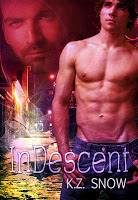
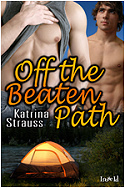
Hey. HEY. What's up with this?

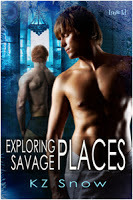
And this?(I'd know those nipples anywhere!)
Girl, if I didn't like your books so much, I'd rat you out to Chris at Stumbling Over Chaos!
Published on April 11, 2012 20:37
April 9, 2012
April 8, 2012
GIVEAWAY
I know this is pretty bad timing (considering it's Easter Sunday), but . . . Dreamspinner is offering a free copy of A Hole in God's Pocket at Reviews by Jessewave. Given the day, there might not be too many entrants, so you could have a good shot at this one if you're interested!
Published on April 08, 2012 12:27
April 6, 2012
A bible doesn't have to be banged . . .
I've pretty much been ear-deep in edits lately (for Carny's Magic, my May 29 Loose Id release), so between that, my domestic obligations, and shopping for nonfiction books -- I've recently developed a craving for them -- I haven't paid much attention to anything else. I realized, sort of at the last minute, that I had a release on Wednesday. But since I was on a tight edit-deadline, I didn't pay that much mind, either. (Besides, what can you do aside from letting readers know your title is available? When a book's out, it's out. Pimp-hammering the hell out of people doesn't accomplish much.)
Anyway, my search for new books resulted in the usual link-following. I'll admit I'm easily distracted. :) A study of the 1856 Mormon handcart-pioneer tragedy eventually led me to Marie Sexton's Between Sinners and Saints, which I've wanted to read since it came out. Like Marie's other excellent books, this one is highly regarded. But plenty of readers still took issue, however delicately, with the story's religious content.
I'd had a little knot in my stomach before A Hole in God's Pocket was released. The knot returned. 'Cause I ain't Marie Sexton. Often, any m/m romance that centers on the subject of questioning one's faith invites a certain reaction complete with certain words. I've encountered this before, and I'm sure other writers have too. Whether a character is criticizing or defending his (or his love interest's) beliefs, or simply trying to explain the nature of his spiritual conundrum, the author is setting him/herself up for charges of being "preachy" or "heavy-handed"; of "lecturing" or "sermonizing."
Often, any m/m romance that centers on the subject of questioning one's faith invites a certain reaction complete with certain words. I've encountered this before, and I'm sure other writers have too. Whether a character is criticizing or defending his (or his love interest's) beliefs, or simply trying to explain the nature of his spiritual conundrum, the author is setting him/herself up for charges of being "preachy" or "heavy-handed"; of "lecturing" or "sermonizing."
This bothers me. A lot.
How can an individual or a couple work through such a profound dilemma without pondering or discussing it? Communication is part and parcel of relationship-building. It leads to understanding, to closeness. Character conversations that center on faith, or doubt, don't mean the author is trying to make converts. They don't constitute either evangelical sermons or atheistic diatribes. They're simply a means to the end that readers of m/m romance are always looking for: character self-acceptance, and intimacy grounded in mutual respect.
Here's an extract from an earlier post about A Hole in God's Pocket. I hope it offers some insights that will allay readers' fears. (And if it doesn't, I'm sorry to disappoint you.)

Anyway, my search for new books resulted in the usual link-following. I'll admit I'm easily distracted. :) A study of the 1856 Mormon handcart-pioneer tragedy eventually led me to Marie Sexton's Between Sinners and Saints, which I've wanted to read since it came out. Like Marie's other excellent books, this one is highly regarded. But plenty of readers still took issue, however delicately, with the story's religious content.
I'd had a little knot in my stomach before A Hole in God's Pocket was released. The knot returned. 'Cause I ain't Marie Sexton.
 Often, any m/m romance that centers on the subject of questioning one's faith invites a certain reaction complete with certain words. I've encountered this before, and I'm sure other writers have too. Whether a character is criticizing or defending his (or his love interest's) beliefs, or simply trying to explain the nature of his spiritual conundrum, the author is setting him/herself up for charges of being "preachy" or "heavy-handed"; of "lecturing" or "sermonizing."
Often, any m/m romance that centers on the subject of questioning one's faith invites a certain reaction complete with certain words. I've encountered this before, and I'm sure other writers have too. Whether a character is criticizing or defending his (or his love interest's) beliefs, or simply trying to explain the nature of his spiritual conundrum, the author is setting him/herself up for charges of being "preachy" or "heavy-handed"; of "lecturing" or "sermonizing."This bothers me. A lot.
How can an individual or a couple work through such a profound dilemma without pondering or discussing it? Communication is part and parcel of relationship-building. It leads to understanding, to closeness. Character conversations that center on faith, or doubt, don't mean the author is trying to make converts. They don't constitute either evangelical sermons or atheistic diatribes. They're simply a means to the end that readers of m/m romance are always looking for: character self-acceptance, and intimacy grounded in mutual respect.
Here's an extract from an earlier post about A Hole in God's Pocket. I hope it offers some insights that will allay readers' fears. (And if it doesn't, I'm sorry to disappoint you.)
What drove me to write the book (in addition to my lifelong fascination with human belief systems) was something I'd read online a while back, an opinion piece by a queer guy who lamented how the issue of spirituality was usually overlooked in queer fiction. He was right.
Authors don't hesitate to cast fundamentalist homophobes as villains, which is perfectly understandable and justified, but not many in the m/m romance genre want to tackle the importance of faith in the lives of gay men and the painful struggle that often results when orientation clashes with theology. None of the so-called Abrahamic religions -- Judaism, Christianity, and Islam, in nearly all their various sectarian manifestations -- takes a kind view of [deviations from strict] heterosexuality.
So I considered the difference between Christian manifestos disguised as fiction (the Left Behind series, for example) and religious faith as a theme in fiction. Although I still haven't breathed a sigh of relief, the difference quickly became apparent. The aim of evangelical writers is, essentially, to proselytize. Spreading the Word is part and parcel of their raison d'etre. But the rest of us, whether it's Marie Sexton or Andrew Grey or Shelter Somerset or authors of "literary" GLBTQ stories, aren't ideologues. We're simply trying to examine a significant and often troubling issue that shouldn't be ignored.
Published on April 06, 2012 16:07
April 3, 2012
It's here.
Published on April 03, 2012 21:05
March 29, 2012
The Trans Man Who Loved Me
Most of the stories I write are made up. This one isn't. This one's true.
A long time ago -- in the early '80s, to be more exact -- I lived in a resort area and worked at a country inn that had a casual but quite excellent restaurant. (See, this is the kind of job you end up with when you have a couple of useless degrees and decide the corporate world isn't for you.) One of the cooks was from a nearby city. He was a gay man, the one I mentioned in my post, "Don't Want No Corvette Cocks," at the Chicks and Dicks blog. I think I called him Billy. Two or three of Billy's gay friends would often visit him on weekends. One was, technically, bi. I'll call him Carl. He was rather effeminate and had a decided preference for men, but once in a blue moon he would crush on a woman. I became a member of that exclusive club. And, believe me, it was pretty damned exclusive. Carl figured he'd had about 500 male lovers and maybe 10 or 12 who were female. (HIV-AIDS hadn't yet, by the way, made a significant incursion into that part of the country.)
This resort area in general and the inn owners in particular were rather laid back and liberal. So Billy and his circle of friends had no real problem finding acceptance. Except for one buddy, Sal, who was a talented silversmith. He had a great sense of humor and was every bit as much fun as Billy's other friends. Problem was, Sal was perceived as a "bull dyke" instead of a man. Because he was born female.
Testosterone injections and sex reassignment surgeries were as expensive then as they are now, and a whole lot harder to come by. There was no way a humble artisan could afford either one. Public understanding was even more elusive. Not much press had been given to transgender persons.
When Sal became infatuated with me, I didn't know what to make of it. When Sal became jealous and resentful of my relationship with Carl (because Sal considered himself far more masculine -- and, in many ways, was), I became even more confused. In an attempt to understand, I visited Sal at his jewelry shop. We had a long and enlightening visit. It was the first time I'd heard anyone talk about being born into the wrong body, about feeling a severe and disturbing disconnect between his physical person and the one who was trapped inside him. I got it, though. His sincerity was impossible not to get.
Sal kept telling me, "Try it; you'll like it" (his exact words). He meant having an intimate relationship with him. The appeal left me dumbstruck. I was 75% straight woman and 25% gay man. That mix didn't allow for attraction to Sal. In fact, I wouldn't have been attracted to Sal, except as a friend, had he been born a heterosexual male. I didn't want to say that, though, because I didn't want to hurt his feelings. All I could say was, "I don't think it would work," and apologize.
It was an intensely uncomfortable situation all around. I had a mostly gay lover (and dealt with over-the-bar snark and scorn from one of my former straight-dude hookups because of it). I had a transgender "admirer" who was hung up on me and stared daggers at Carl whenever we were together. Poor innocent Billy didn't know what to do, since we were all his friends. I was guilt-ridden as hell and had no idea how to make any of it better. So I just rode it out.
Six or seven years later, I wrote a novel called Every Long Season in which there's a main character modeled after Sal. It was pretty good but pretty grim, and I never submitted it anywhere, because back then, nobody would have wanted it. In a way, the story was my apology to Sal for feeling his pain and not being able to do a damned thing about it except try to comprehend it. I couldn't change who I was any more than he could change who he was.
So what's my point? I guess it's this. Regardless of our open-mindedness and good intentions, we can't be everything to everybody. Guilt is pointless. We can (and should) be understanding and sympathetic and supportive, we can (and should) try to fight the good fight or help others fight it, but at some level we're immutable. We can't alter the essentials of who and what we are. From our prenatal lives onward, a host of forces shape us. Tastes and opinions can and often do change, but we can't simply morph from one mindset into another or replace an aversion with a preference because we or other people would like us to. And that isn't bad, unless it's . . . BAD. Like mean-spirited and destructive. Like abusive-partner and serial-rapist and mass-murderer and child-molester bad; like con-man and Somali-pirate and Westboro Baptist Church bad. However, if someone is simply trying to do the best he can with the hand he's been dealt, he's doing okay, as far as I'm concerned. It's all about the Golden Rule.
I couldn't help being reminded of this chapter in my life when Jessewave got thrown into the centrifuge. We writers and readers of m/m romance aren't narrow-minded numbskulls. Hell, we wouldn't have anything to do with this genre if we were. But we can't be everything to everybody -- no matter how warmly we embrace the rainbow in our hearts and, whenever we can, in our daily lives. That doesn't make us "stupid" or "juvenile" or "despicable." And it sure as shit doesn't make us any kind of "phobic." Lordie, people, think about the meanings of words before you start flinging them around like toxic confetti!
I wish there weren't so many blame-throwers around, so many self-appointed arbiters of righteousness. What the hell is with that? Do they think they can read our souls? I wish people who routinely got on their high-horses would fucking dismount once and for all. Can't all these sniffy, judgmental individuals see that most of us aren't shit-for-brains ignoramuses or evildoers? Can't they see we're not trying to hurt or disrespect anybody before they go into full-tilt, finger-pointing boogie mode?
Guess not. But it would benefit the human population a whole lot more if they targeted the true and frightening enemies of GLBTQ people. There are a Million Moms out there, for starters, to fuel their disgust.
Published on March 29, 2012 10:49

